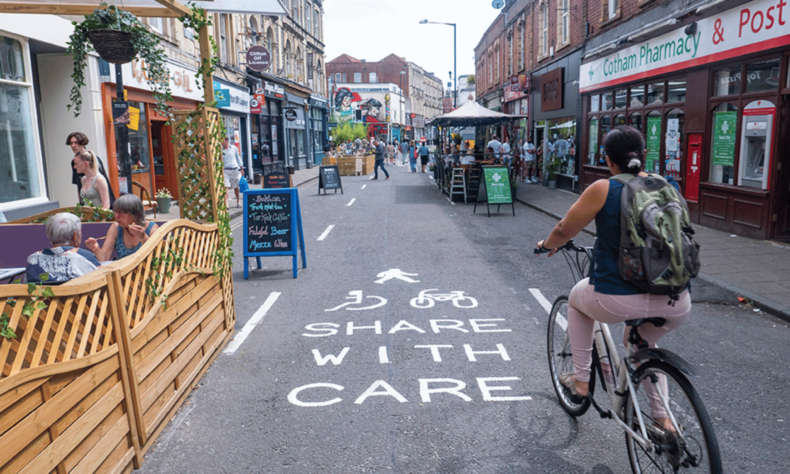Proposals to seek £5.2 million funding for making walking and cycling easier in eight areas across Bristol will be considered by Bristol City Council’s Cabinet next week.
When it meets on 24 January, Cabinet will decide whether to request funding from the West of England Combined Authority for projects that aim to reduce the impact of traffic on our high streets.
Eight projects have been put forward as schemes that could be delivered using a proportion of the City Region Sustainable Transport Settlement set aside for Liveable Neighbourhood projects in Bristol.
The projects would pave the way for safer walking and cycling routes and would be located in the city centre, Ashley Down, Clifton, Redland, Easton, and Eastville.
If the funding is secured, it would go towards delivering permanent pedestrianisation schemes in Cotham Hill, Bristol’s Old City, and King Street, as well as closing Overton Road where it meets Gloucester Road in Ashley Down, to through traffic.
It would also go towards engaging residents and businesses to find out how they would like to make the timed road closures that are now permanent on Princess Victoria Street in Clifton and Denmark Street in the city centre look and feel more established before construction work begins. On top of resurfacing work and new signage, this could include continuous pavements, planting and more.
The funding would also cover working with residents and businesses in Redland to shape plans for a timed road closure on Chandos Road as well as working with residents around Rosemary Lane in Easton on plans to close a section of the street to through traffic, to link up two green spaces and make walking and cycling to May Park School easier and safer.
A request to fund cycle parking and dropped kerbs on St Mark’s Road in Easton, as part of a wider scheme, would also be put forward.
Councillor Don Alexander, Cabinet Member for Transport, said:

We’re looking to transform a range of neighbourhoods across the city that are dominated by cars and other larger vehicles so we can open them up more for community use.
Rebalancing our streets will encourage more people to embrace active travel, especially for shorter journeys, and make areas look more attractive while also supporting hospitality venues.
Our overall ambition is to improve Bristol’s transport network to create cleaner air and better, more reliable bus services, improved walking and cycling routes, alongside our ongoing plans for an underground mass transit system.
To find out more download the cabinet report.
